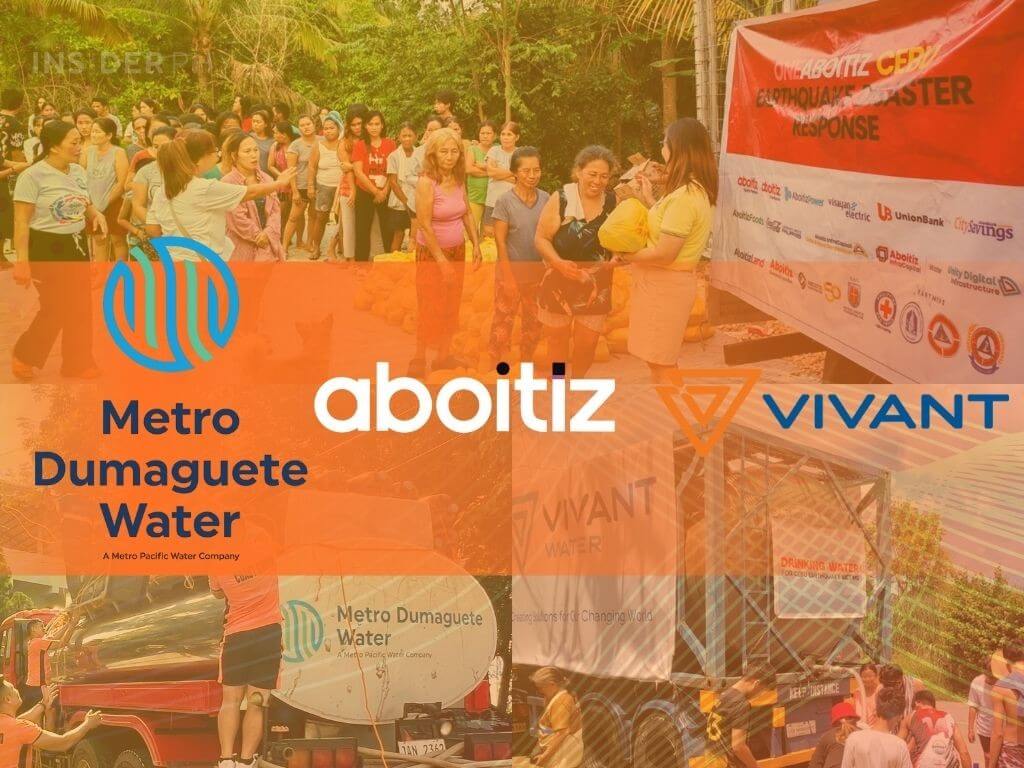

Insider Spotlight
The response from Aboitiz Group, Metro Dumaguete Water, Vivant Corp. and other companies shows how the private sector can fill critical gaps when government resources are stretched, a recurring reality in disaster-prone Philippines.
Driving the News
In a press release, Aboitiz Group announced that the company has distributed P2.7 million worth of aid to more than 9,000 families, including 93,681 liters of water, 3,815 food packs, and 2,115 non-food items. More than 300 employees from its different business units volunteered to sort, pack, and deliver relief goods—many while also coping with the quake’s personal impact.
Aboitiz Group CEO Sabin Aboitiz praised the volunteers’ commitment:
“Your actions reflect the best of who we are as OneAboitiz—people who care, who act, and who stand together when it matters most. Many of you faced personal challenges from this disaster, yet you chose to help others. That spirit of solidarity is what gives communities hope in the hardest times.”
Metro Dumaguete Water (MDW), in its own statement, sent a water lorry, 220 carboys, and relief goods to Tabuelan and San Remigio, towns struggling with access to clean water. The lorry continues to serve far-flung barangays that have been without water since the quake.
Robert Cabiles, MDW COO, emphasized the importance of this mission:
“Metro Dumaguete Water is sending its support to our neighbors in Cebu through our water lorry and in-kind donations. Water is very important during this phase of immediate recovery. In these difficult times, the power of community is truly important.”
Vivant Corp., through its foundation, focused on keeping essential services running. As detailed in its press release, the company ensured Bantayan Island remained powered while deploying a mobile water treatment system capable of producing 150,000 liters of potable water daily.
Vivant also sent desalinated water tankers from its Isla Mactan Desal Plant to northern Cebu towns and joined Task Force Linog to coordinate relief with LGUs, NGOs, and schools.
Vivant Foundation stressed the role of collaboration:
“By working closely with local governments, schools, NGOs, and community groups, we ensure that power, water, and relief reach those who need them most. Standing together with Cebu in this time of trial is part of our mission to build lasting resilience.”
Why it matters
When disasters strike, the first 72 hours can define survival. Quick access to water, food, and power prevents outbreaks of disease, stabilizes communities, and keeps economies running. In Cebu’s case, corporate resources and logistics provided an immediate safety net.
Beyond immediate aid, these efforts underscore how corporate preparedness and partnerships are becoming a core part of Philippine resilience. With frequent earthquakes and typhoons, businesses that can mobilize quickly are not just protecting their operations—they are protecting lives.
The bottom line
The Cebu earthquake tested both infrastructure and people—but the coordinated response of Aboitiz, Metro Dumaguete Water, and Vivant also showed how bayanihan extends to the private sector. By combining compassion with capacity, companies have proven they are not only economic drivers but also first responders when communities need them most. – Ed. Princess Daisy C. Ominga